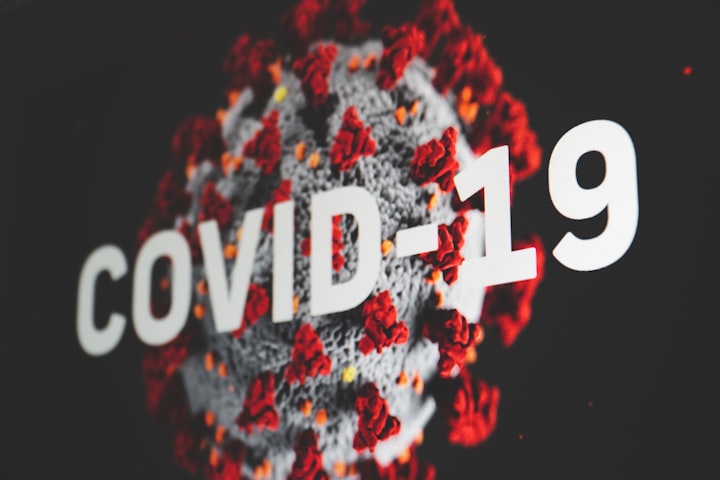The Disproportional Impact of COVID-19 on African Americans
devastating Impact of COVID-19

Introduction
We are all affected by the current COVID-19 epidemic. However, the effects of this epidemic and its effects are felt differently depending on our situation as individuals and as members of society. While some are trying to adapt to working online, teaching their children at home and ordering food through Instacart, others have no choice but to become exposed to the virus while keeping the community active. Our unique social identities and the social groups we belong to determine our inclusion in society and, in addition, our vulnerability to the epidemic.
COVID-19 kills people on a grand scale. As of October 10, 2020, more than 7.7 million people across the United States and its four regions have been tested for COVID-19. According to a New York Times database, 213,876 infected people have died in the United States. [1] However, these alarming numbers give us only half the picture; A closer look at the details of different social identities (such as class, gender, age, race, and medical history) shows that a few are immeasurably affected by the epidemic. These young people in the United States do not have a valid health right.
According to a report by the World Health Organization Closing the Gap in a Generation: Health Equity through Action on the Social Determinants of Health, bad. ”[2] This toxic compound as it plays out in this time of crisis, and as the first news on the outcome of the COVID-19 epidemic unfolds, has a profound impact on African American communities in the United States. I can see that the epidemic has had a devastating effect on a few others, but space does not allow this issue to assess the impact on other subgroups.
Using the human rights lens in this analysis helps us to interpret needs and social problems in rights, focusing on social and political structure as the cause of social problems. Human rights promote the dignity and worth of all human beings, who are the owners of basic rights. [3] Governments (and other social actors, such as companies) are responsible, and as such have a responsibility to respect, protect and fulfill human rights. [4] Human rights are inseparable from the social order in which they are perceived, sought, enforced and fulfilled. Specifically, social rights, including the right to health, can be important tools for developing national identity and enhancing their ability to participate as active members of society. [5] Such an understanding of social rights draws our attention to the idea of equality, which requires us to focus more on “unity” and “oneness.” [6] Furthermore, in order to create equality, solidarity, and social cohesion, the realization of civil rights is not an option. [7] In order to achieve social inclusion, social policies must reflect a commitment to respecting and protecting vulnerable people and to creating conditions for the realization of the economic and social rights of all.
The indisputable impact of COVID-19 on African Americans
As noted by Samuel Dickman et al .:
economic inequality in the US has been growing for decades and is now among the most advanced countries in the developed world… As economic inequality in the US has increased, so has health inequality. Both general and public health spending is higher in the US than in other countries, however insufficient insurance coverage, high patient distribution, and local restrictions restrict access to general care. [8]
For example, according to the Kaiser Family Foundation, in 2018, 11.7% of African Americans in the United States did not have health insurance, compared to 7.5% of whites. [9]
Prior to the Affordable Care Act - enacted into law in 2010 - about 20% of African Americans were uninsured. The move helped reduce the uncertainty rate among non-African Americans by no more than one-third between 2013 and 2016, from 18.9% to 11.7%. However, even after the enactment of the law, African Americans have higher unconfirmed rates than whites (7.5%) and Asian Americans (6.3%). [10] Unconfirmed people have far more opportunities than insurance to give up necessary medical visits, tests, treatments, and medications for cost.
As the COVID-19 virus spreads across the United States, test kits are evenly distributed between labs in 50 states, regardless of population density or actual testing requirements in those countries. The opportunity to stop the spread of the virus in its infancy was lost, with serious consequences for many Americans. Although there is a shortage of racially segregated data in the number of people surveyed, the available data highlight the lack of access to tests for African Americans. For example, in Kansas, as of June 27, according to the COVID Racial Data Tracker, in 94,780 studies, only 4 854 were from black Americans and 50,070 were white. However, blacks make up about one-third of the state’s deaths COVID-19 (59 of 208). And while in Illinois the total number of confirmed cases between blacks and whites was almost equal, the survey numbers show a different picture: 220 968 whites were tested, compared to only 78,650 blacks. [11]
Similarly, American Public Media reported the death rate of COVID-19 on a racial / ethnic basis on July 21, 2020, including Washington, DC, and 45 states (see Figure 1). These data, while showing the alarming death rate of all races, show how few are seriously affected and that, among minority groups, the number of African Americans in many provinces is bearing the brunt of the epidemic.
About the Creator
Sumesh Bhaila
The main purpose of my writing is to motivate you people to do something that can help you achieve your big goals and dreams whatever they may be...
Please like & share it and also support me by leaving a tip.





Comments
There are no comments for this story
Be the first to respond and start the conversation.